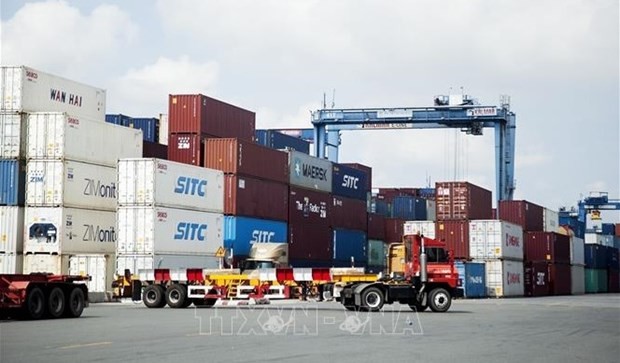
Vietnam advised to expand exports, hold new markets: World Bank
Latest
The latest Report from the World Bank (WB) updating Vietnam's macroeconomic situation in October noted that exports and imports continue to recover, meeting the increasing demand from abroad.
 |
| Exports, in addition to consumption and investment, play a crucial role in propelling Vietnam's economy beyond challenges, aiming to swiftly revive it. |
Although the export situation has shown signs of improvement since May, the cumulative figure for the first 10 months remained lower than the same period in 2022. However, this indicator shows positive signals, reflecting the high competitiveness of many export goods and services that Vietnam excels in.
Ramla Khalidi, UNDP Resident Representative in Vietnam, acknowledged that by focusing on promoting exports, Vietnam is correct in pursuing a self-reliance policy through integration to increase market share for goods and services shipped overseas, including those with advantages in high-demand global markets.
However, in the long run, Vietnam may lose competitiveness in some price-sensitive export sectors, especially in labor-intensive manufacturing or agriculture. This underscores the importance of quickly expanding markets and holding new ones as demand is expected to increase.
To promote sustainable export development and enhance Vietnam's export competitiveness, Tran Thanh Hai, Deputy Director of the Ministry of Industry and Trade (MoIT)’s Agency of Foreign Trade, held that measures need to be developed to support production, create a sustainable supply, and expand into new export markets. Furthermore, the government needs to continue refining its institutional framework and strengthen state management in import-export activities to facilitate fair trade and counter fraud.
From a business perspective, Le Tien Truong, Chairman of the Vietnam National Garment and Textile Group (Vinatex), said to enhance Vietnam's export competitiveness, it is necessary to focus on investing in automation to increase productivity and efficiency, reduce labor costs, and improve the quality and consistency of products.
Businesses also proposed that the government and relevant ministries continue to collaborate with them in exploring new partnerships, markets, and customers through the implementation of trade promotion programs and the signing of free trade agreements and cooperation protocols. Additionally, they recommended the formulation of policies to encourage the shift towards green and sustainable production.





















